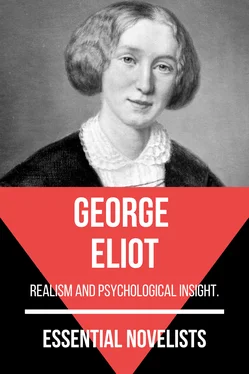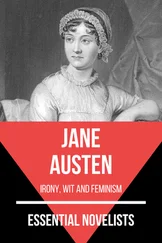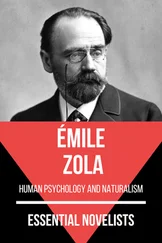Will, however, having given that annihilating pinch, was rather ashamed, imagining from Dorothea's silence that he had offended her still more; and having also a conscience about plucking the tail-feathers from a benefactor.
"I regretted it especially," he resumed, taking the usual course from detraction to insincere eulogy, "because of my gratitude and respect towards my cousin. It would not signify so much in a man whose talents and character were less distinguished."
Dorothea raised her eyes, brighter than usual with excited feeling, and said in her saddest recitative, "How I wish I had learned German when I was at Lausanne! There were plenty of German teachers. But now I can be of no use."
There was a new light, but still a mysterious light, for Will in Dorothea's last words. The question how she had come to accept Mr. Casaubon—which he had dismissed when he first saw her by saying that she must be disagreeable in spite of appearances—was not now to be answered on any such short and easy method. Whatever else she might be, she was not disagreeable. She was not coldly clever and indirectly satirical, but adorably simple and full of feeling. She was an angel beguiled. It would be a unique delight to wait and watch for the melodious fragments in which her heart and soul came forth so directly and ingenuously. The Aeolian harp again came into his mind.
She must have made some original romance for herself in this marriage. And if Mr. Casaubon had been a dragon who had carried her off to his lair with his talons simply and without legal forms, it would have been an unavoidable feat of heroism to release her and fall at her feet. But he was something more unmanageable than a dragon: he was a benefactor with collective society at his back, and he was at that moment entering the room in all the unimpeachable correctness of his demeanor, while Dorothea was looking animated with a newly roused alarm and regret, and Will was looking animated with his admiring speculation about her feelings.
Mr. Casaubon felt a surprise which was quite unmixed with pleasure, but he did not swerve from his usual politeness of greeting, when Will rose and explained his presence. Mr. Casaubon was less happy than usual, and this perhaps made him look all the dimmer and more faded; else, the effect might easily have been produced by the contrast of his young cousin's appearance. The first impression on seeing Will was one of sunny brightness, which added to the uncertainty of his changing expression. Surely, his very features changed their form, his jaw looked sometimes large and sometimes small; and the little ripple in his nose was a preparation for metamorphosis. When he turned his head quickly his hair seemed to shake out light, and some persons thought they saw decided genius in this coruscation. Mr. Casaubon, on the contrary, stood rayless.
As Dorothea's eyes were turned anxiously on her husband she was perhaps not insensible to the contrast, but it was only mingled with other causes in making her more conscious of that new alarm on his behalf which was the first stirring of a pitying tenderness fed by the realities of his lot and not by her own dreams. Yet it was a source of greater freedom to her that Will was there; his young equality was agreeable, and also perhaps his openness to conviction. She felt an immense need of some one to speak to, and she had never before seen any one who seemed so quick and pliable, so likely to understand everything.
Mr. Casaubon gravely hoped that Will was passing his time profitably as well as pleasantly in Rome—had thought his intention was to remain in South Germany—but begged him to come and dine to-morrow, when he could converse more at large: at present he was somewhat weary. Ladislaw understood, and accepting the invitation immediately took his leave.
Dorothea's eyes followed her husband anxiously, while he sank down wearily at the end of a sofa, and resting his elbow supported his head and looked on the floor. A little flushed, and with bright eyes, she seated herself beside him, and said—
"Forgive me for speaking so hastily to you this morning. I was wrong. I fear I hurt you and made the day more burdensome."
"I am glad that you feel that, my dear," said Mr. Casaubon. He spoke quietly and bowed his head a little, but there was still an uneasy feeling in his eyes as he looked at her.
"But you do forgive me?" said Dorothea, with a quick sob. In her need for some manifestation of feeling she was ready to exaggerate her own fault. Would not love see returning penitence afar off, and fall on its neck and kiss it?
"My dear Dorothea—'who with repentance is not satisfied, is not of heaven nor earth:'—you do not think me worthy to be banished by that severe sentence," said Mr. Casaubon, exerting himself to make a strong statement, and also to smile faintly.
Dorothea was silent, but a tear which had come up with the sob would insist on falling.
"You are excited, my dear. And I also am feeling some unpleasant consequences of too much mental disturbance," said Mr. Casaubon. In fact, he had it in his thought to tell her that she ought not to have received young Ladislaw in his absence: but he abstained, partly from the sense that it would be ungracious to bring a new complaint in the moment of her penitent acknowledgment, partly because he wanted to avoid further agitation of himself by speech, and partly because he was too proud to betray that jealousy of disposition which was not so exhausted on his scholarly compeers that there was none to spare in other directions. There is a sort of jealousy which needs very little fire: it is hardly a passion, but a blight bred in the cloudy, damp despondency of uneasy egoism.
"I think it is time for us to dress," he added, looking at his watch. They both rose, and there was never any further allusion between them to what had passed on this day.
But Dorothea remembered it to the last with the vividness with which we all remember epochs in our experience when some dear expectation dies, or some new motive is born. Today she had begun to see that she had been under a wild illusion in expecting a response to her feeling from Mr. Casaubon, and she had felt the waking of a presentiment that there might be a sad consciousness in his life which made as great a need on his side as on her own.
We are all of us born in moral stupidity, taking the world as an udder to feed our supreme selves: Dorothea had early begun to emerge from that stupidity, but yet it had been easier to her to imagine how she would devote herself to Mr. Casaubon, and become wise and strong in his strength and wisdom, than to conceive with that distinctness which is no longer reflection but feeling—an idea wrought back to the directness of sense, like the solidity of objects—that he had an equivalent centre of self, whence the lights and shadows must always fall with a certain difference.
––––––––

"NOUS CÂUSAMES LONGTEMPS; elle était simple et bonne.
Ne sachant pas le mal, elle faisait le bien;
Des richesses du coeur elle me fit l'aumône,
Et tout en écoutant comme le coeur se donne,
Sans oser y penser je lui donnai le mien;
Elle emporta ma vie, et n'en sut jamais rien."
—ALFRED DE MUSSET.
––––––––

WILL LADISLAW WAS DELIGHTFULLY agreeable at dinner the next day, and gave no opportunity for Mr. Casaubon to show disapprobation. On the contrary it seemed to Dorothea that Will had a happier way of drawing her husband into conversation and of deferentially listening to him than she had ever observed in any one before. To be sure, the listeners about Tipton were not highly gifted! Will talked a good deal himself, but what he said was thrown in with such rapidity, and with such an unimportant air of saying something by the way, that it seemed a gay little chime after the great bell. If Will was not always perfect, this was certainly one of his good days. He described touches of incident among the poor people in Rome, only to be seen by one who could move about freely; he found himself in agreement with Mr. Casaubon as to the unsound opinions of Middleton concerning the relations of Judaism and Catholicism; and passed easily to a half-enthusiastic half-playful picture of the enjoyment he got out of the very miscellaneousness of Rome, which made the mind flexible with constant comparison, and saved you from seeing the world's ages as a set of box-like partitions without vital connection. Mr. Casaubon's studies, Will observed, had always been of too broad a kind for that, and he had perhaps never felt any such sudden effect, but for himself he confessed that Rome had given him quite a new sense of history as a whole: the fragments stimulated his imagination and made him constructive. Then occasionally, but not too often, he appealed to Dorothea, and discussed what she said, as if her sentiment were an item to be considered in the final judgment even of the Madonna di Foligno or the Laocoon. A sense of contributing to form the world's opinion makes conversation particularly cheerful; and Mr. Casaubon too was not without his pride in his young wife, who spoke better than most women, as indeed he had perceived in choosing her.
Читать дальше













